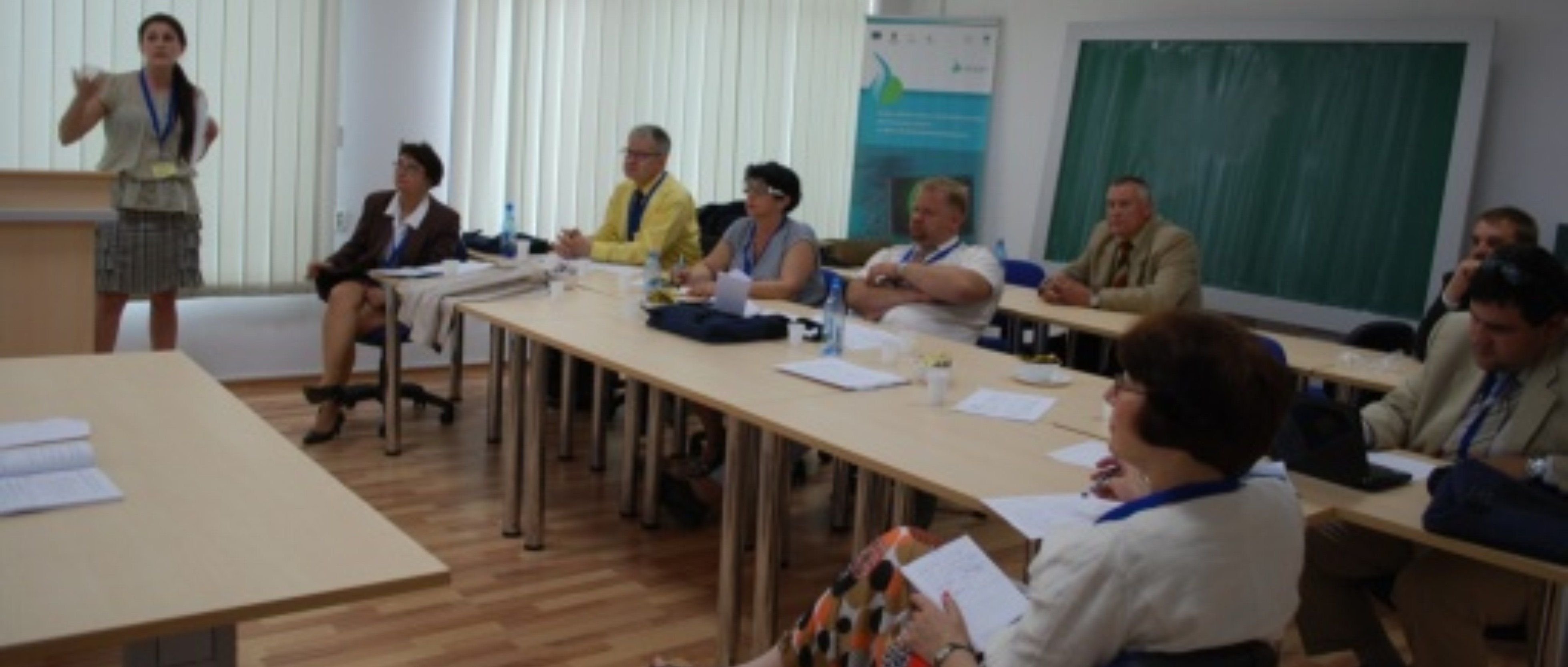Thematic Workshop „Food Production, Control and Valorization“
Chairs: EwaRembiałkowska, WULS, Warsaw), Carmen Socaciu (USAMV, Cluj-Napoca)
Herak David (CULS, Prague), Comparison of the mechanical behavior of selected oilseeds under compression loading
The paper provides information about the comparison of mechanical behavior of selected oil bearing crops: rape, sunflower and jatropha seeds. The results showed that jatropha needed the moderate energy to obtain the oil, less than rape but more than sunflower. Jatropha oil is not edible; it is used in medicine and as the fuel. It is important plant for Indonesia, Africa and some other countries, however not for Europe. The cultivation of jatropha is a good example of the sustainable production of the fuel.
Roman Ioana (USAMV, Cluj-Napoca), Assessment of autumn- and winter apple varieties with regard to certain traits conferring suitability to juice production
The study is analyzing many cultivars of apples used for the juice production. Not only the yield but also some nutritive traits have been analyzed. It has been found that winter cultivars were more suitable for the juice production that the autumn cultivars. It was an important discussion after the presentation about the reasons why the Romanian consumers are not buying the apple juices, but they prefer to buy Coca-Cola and other unhealthy drinks. We have distinguished 2 main reasons: 1) the price of the apple juices is higher than the other artificial drinks, containing sugar and different chemical additives 2) the Romanian consumers don’t know enough about the importance of the natural fruit juices in human health. In other EU countries the situation depends on the richness and the nutritional awareness of the society.
Petek Marko (University of Zagreb, Faculty of Agriculture), Nitrogen and crude proteins in beetroot under different fertilization and post-harvest treatment
The paper reported the impact of the nitrogen fertilization on the dry matter and crude protein content in beetroots. The authors have found that the highest level of nitrogen fertilization (1000 kg NPK 5:20:30)/ ha was the best for the studied parameters. They compared the impact of 50 t/ha of stable manure, 500 kg NPK/ha and 1000 kg NPK/ ha. The authors have concluded that it was a good result because the beetroots with high level of crude proteins and dry matter were functional food good for human nutrition. We have discussedtheir results and interpretation at the workshop. The assumption that high nitrogen and crude protein level in our food, in that vegetables, is good for our health is incorrect. Especially that the authors haven’t presented any data on the nitrates and nitrites content in the studied beetroots and it is easy to exceed the admissible level of these compounds if we use high doses of nitrogen. Moreover the current nutritionists present the opinion that high nitrogen fertilization, especially mineral one, leads to diminished level of the important bio compounds as polyphenols, helping us to fight the cancer development.
Raica Paul (USAMV, Cluj-Napoca), Assessment of Immunomodulatory Effect of Chenopodium bonus-henricus Polysaccharides Extract
Unfortunately the authors didn’t present this study at all.
Mihaiu Marian (USAMV, Cluj-Napoca), Assessment Of Small-Scale Buffalo Milk Dairy Production – A Premise For A Durable Development
The presented study was very interesting – the milk and cheese production of buffalo cows has been analyzed from the hygienic point of view. Buffalo husbandry is important for the small scale dairy producers in Romania. Using the high analytical technology the authors have discovered 2 big problems: 1) the adulteration of the products - mixing the buffalo milk with the cow milk because of the price reasons 2) the contamination of the products mostly with Listeria sp. The conclusions are right – it is necessary to introduce the quality control in the whole production chain of the buffalo products.
To summarize, the whole workshop has revealed the importance of the small-scale sustainable production and the necessity of the nutritional and hygienic education in the European society, both among the producers and the consumers.
We thank all presenters for the insightful presentations and lively discussions!


